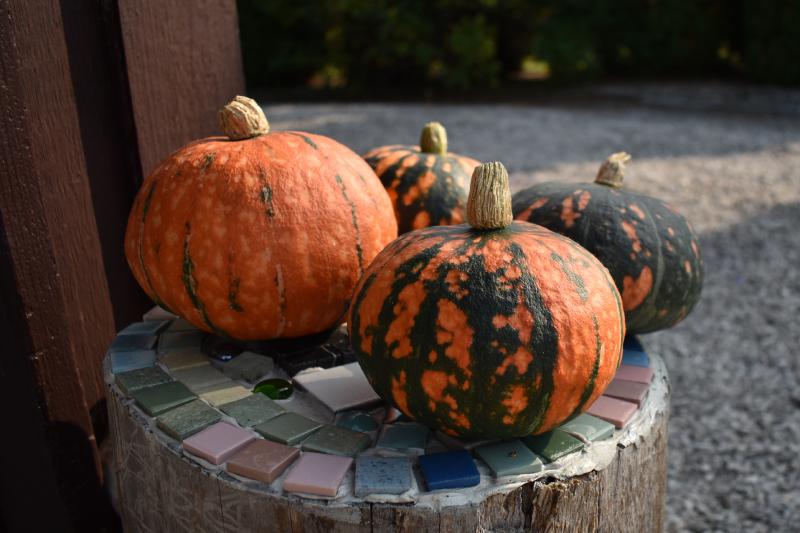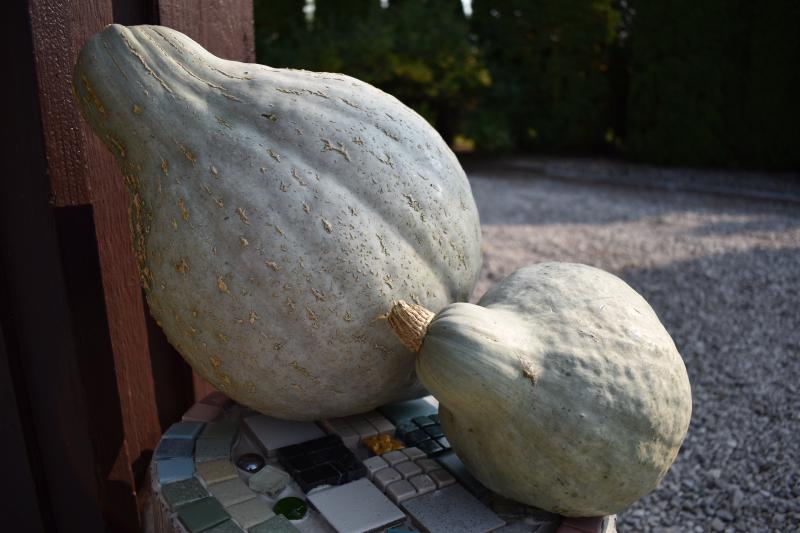flowerbug
Garden Master
a few selected squash pictures. 
the varigated/mixed color type:

and the baby blue hubbards, if these are babies i don't want to meet the parents!


the varigated/mixed color type:

and the baby blue hubbards, if these are babies i don't want to meet the parents!


